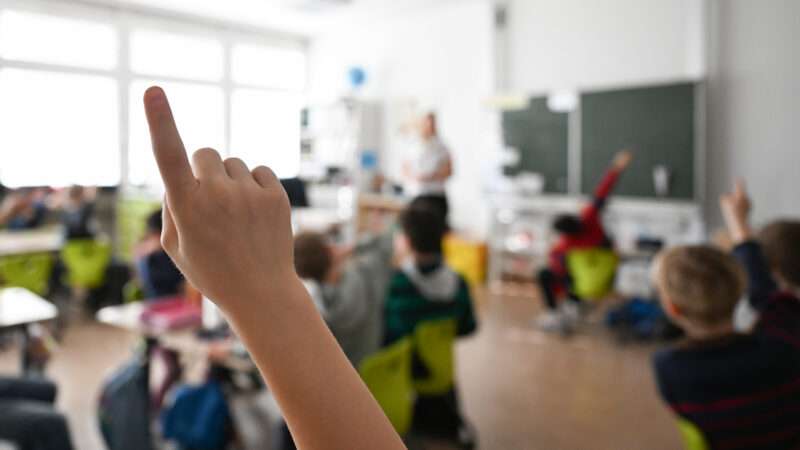
Seattle is getting rid of its specialized public schools in an effort to increase racial equity. Ironically, this decision may end up hurting the very students the policy change is intended to help.
In 2021, Seattle Public Schools (SPS) moved to phase out its "highly capable cohort schools." The district had three elementary schools, five middle schools, and three high schools devoted to teaching students at an accelerated pace. The district plans to finish phasing out the specialized schools by the 2027–28 school year. The reasons behind the change are rooted in the disproportionate number of white and Asian students in the program.
"The Seattle community and our families began to demonstrate discomfort with the racial gap disparity in classrooms and in schools now affiliated with" the advanced schools, reads a 2020 SPS task force report, which recommended doing away with the accelerated program. "Our current data regarding students receiving services who are identified as highly capable is disproportionate to the student populations who attend our school classrooms each day….Current practices must be interrupted and an authentic examination of our commitments and priorities must occur."
School officials say that gifted students will still get specialized instruction through the "highly capable neighborhood" model it plans to start next school year. However, a recent story from The Seattle Times sheds doubt on Seattle's ability to make good on this promise.
"SPS is offering a whole-classroom model where all students are in the same classroom and the teacher individualizes learning plans for each student," writes reporter Claire Bryan. "Teachers won't necessarily have additional staff in the classroom; the district is working to provide teachers with curriculum and instruction on how to make it work."
The idea that teachers have the extra time to craft individual instruction for each student in a classroom with a wide range of ability levels is obviously far-fetched.
"You can only do so much differentiation," Karen Stukovsky, a parent with three children in highly capable cohort schools, told the Times. She added that one principal told her, "You have some kids who can barely read and some kids who are reading 'Harry Potter' in first grade or kindergarten. How are you going to not only get those kids up to grade level and also challenge those kids who are already way above grade level?"
Jonathan Plucker, an education professor at Johns Hopkins University told the Times that the new program "is almost asking the impossible of people, that is just so hard."
Bryan's article helpfully points out several ways SPS is moving to increase diversity in highly capable cohort schools—solutions that don't require ditching the program. SPS has begun requiring that all children are tested for advanced academic ability every year from first to eighth grade. Previously, this testing wasn't universal and was conducted on Saturdays—making it harder for low-income kids, whose parents may work on Saturdays, to get identified.
When school districts get rid of advanced offerings in a bid to reduce racial inequality, they end up doing to opposite of what they claim to intend. While wealthier families can move to better school districts or enroll their children in private schools, smart—yet poor—kids end up getting stuck in "equitable" classrooms that leave them under-stimulated and ignored.
The post Seattle Is Getting Rid of Gifted Schools in a Bid To Increase Equity appeared first on Reason.com.







